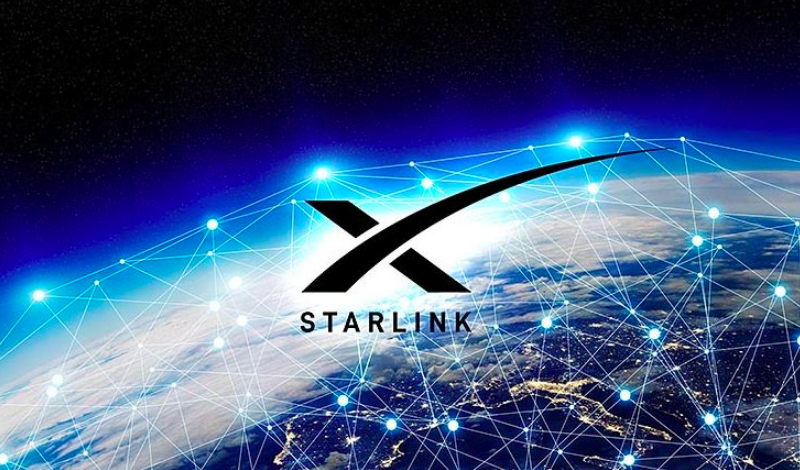In a remarkable feat for the private space industry, SpaceX, the aerospace manufacturer and space transportation company founded by Elon Musk, has officially been recognized as the world’s most valuable private startup, achieving an astounding valuation of $350 billion. This milestone marks a significant achievement in the history of private space exploration and positions SpaceX as a dominant force in the commercial Home.
The Rise of SpaceX: A Brief Overview
Founded in 2002 by Elon Musk, SpaceX set out with an ambitious goal: to revolutionize space travel and reduce the costs associated with reaching space. Over the years, the company has made impressive strides, building reusable rockets, launching thousands of satellites, and collaborating with NASA to deliver cargo to the International Space Station (ISS). It has also laid the groundwork for its Starship project, aimed at taking humans to Mars and beyond.
SpaceX’s early successes in reducing the cost of space travel through reusable rockets, such as the Falcon 9 and Falcon Heavy, proved to be a game-changer in the aerospace industry. The company’s progress led to lucrative contracts with government agencies, as well as an expanding portfolio of commercial clients. By successfully carrying out satellite launches and providing reliable services to clients like NASA and private companies, SpaceX quickly gained recognition and secured its place as a leader in the space industry.
Achieving the $350 Billion Valuation
The $350 billion valuation was reached following a recent funding round, which saw SpaceX raise capital from a variety of investors, including venture capital firms and private equity groups. This valuation makes SpaceX the most valuable private company in the world, surpassing other tech giants such as Stripe, SpaceX’s competitor Blue Origin, and even Tesla, which, while also led by Elon Musk, is a publicly traded company.
This achievement is a testament to the growing interest in commercial space ventures and the company’s ability to execute its vision for space travel. SpaceX’s track record of successful launches, particularly with its Falcon 9 rockets and its ongoing development of the Starship vehicle, has fueled investor confidence. Additionally, SpaceX’s lucrative contracts with NASA and private sector clients, including satellite companies and space tourism ventures, have contributed to its high valuation.
SpaceX’s continued dominance in the field of satellite internet connectivity through its Starlink program has also played a major role in its valuation. Starlink is a constellation of low-Earth orbit satellites designed to provide high-speed internet access to underserved and rural areas around the world. The program has garnered significant attention and has the potential to generate massive revenue streams for SpaceX in the coming years. With hundreds of satellites already in orbit, Starlink is expected to be a key contributor to SpaceX’s future growth, further solidifying the company’s position as an industry leader.
SpaceX’s Influence on the Commercial Space Industry
SpaceX’s rise to the top has disrupted the traditional aerospace industry, where large, government-backed agencies like NASA and Boeing once held a near-monopoly. By focusing on reducing costs and developing reusable rocket technology, SpaceX has proven that private companies can compete with government organizations in the space sector. This has not only opened up new opportunities for private businesses to venture into space but has also led to increased investment and interest in the commercial space industry.
One of SpaceX’s most notable accomplishments is its work with NASA. The company has successfully transported cargo to the International Space Station (ISS) and played a crucial role in NASA’s Commercial Crew Program by launching astronauts to the ISS aboard its Crew Dragon spacecraft. SpaceX’s reliable, cost-effective transportation services have given NASA a dependable partner for the future of human space exploration.
In addition to NASA, SpaceX’s Starship project holds the promise of transforming the way humans explore space. With its ambition to transport crew and cargo to the Moon, Mars, and beyond, the Starship program could pave the way for interplanetary colonization. If successful, this would represent a quantum leap in humanity’s capabilities in space and could further bolster SpaceX’s valuation in the coming decades.
Furthermore, SpaceX has expanded its reach into the private sector with the development of space tourism, which is poised to become a major industry. SpaceX’s plan to launch civilians into space, in collaboration with companies like Axiom Space, marks a significant step forward in making space more accessible to non-professional astronauts. The success of these ventures will help diversify SpaceX’s revenue streams and cement its place as a pioneer in the commercial space economy.
The Future of SpaceX
SpaceX’s journey is far from over. With its ever-expanding portfolio of projects, the company is positioned to continue its dominance in the space industry. Its $350 billion valuation reflects investor confidence in the company’s long-term growth prospects, particularly as it continues to refine its Starship program and expand its Starlink network.
The Starship project, currently under development, has the potential to change the face of space exploration by allowing humans to travel to Mars and other distant destinations. The massive rocket, capable of carrying both crew and cargo, is still in the testing phase but is expected to undergo significant milestones in the coming years. If successful, Starship will open up new opportunities for space tourism, lunar exploration, and interplanetary travel, which would provide substantial revenue opportunities for SpaceX.
Additionally, SpaceX’s commitment to reducing space travel costs through the development of reusable rockets will likely continue to disrupt the industry. As the company perfects its technologies and launches more cost-effective missions, the price of space access may continue to decrease, further democratizing space and making it more accessible to various industries, organizations, and governments.
In the near future, SpaceX’s Starlink service, which currently provides high-speed internet to remote areas, will likely expand globally. The service has already attracted interest from both consumers and businesses in underserved regions, and its success could generate significant revenue streams for the company. With millions of subscribers projected to join Starlink in the coming years, the service is expected to become a key contributor to SpaceX’s overall financial growth.
Implications for the Space Industry
The $350 billion valuation of SpaceX is a powerful reminder of the growing influence of private companies in space exploration. As SpaceX continues to lead the way, it will likely inspire other companies to follow suit, increasing competition and driving innovation in the aerospace sector.
The rise of private space companies like SpaceX, Blue Origin, and Rocket Lab signals a shift in the industry, with a greater emphasis on cost reduction, technological innovation, and commercialization. This growing competition is likely to drive new advancements in rocket technology, satellite systems, and space travel, ultimately benefiting both the private and public sectors.
Furthermore, SpaceX’s success is paving the way for a new era of space exploration, one that is not solely dependent on government funding and initiatives. The private sector’s growing involvement in space exploration could lead to new opportunities for scientific discovery, economic growth, and international collaboration.
Conclusion
SpaceX’s achievement of a $350 billion valuation cements its place as the world’s most valuable private startup and highlights the significant impact the company has had on the space industry. With its groundbreaking technologies, ambitious projects, and strategic partnerships, SpaceX is poised for continued success in the commercial space sector. As the company moves closer to realizing its vision of making space travel more accessible and affordable, the world will undoubtedly watch with anticipation to see what new milestones SpaceX will reach in the coming years.



